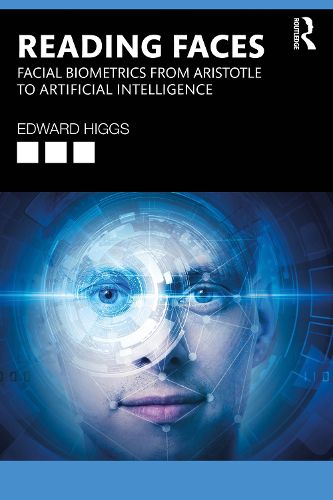Readings Newsletter
Become a Readings Member to make your shopping experience even easier.
Sign in or sign up for free!
You’re not far away from qualifying for FREE standard shipping within Australia
You’ve qualified for FREE standard shipping within Australia
The cart is loading…






Reading Faces is the first book to discuss the historical contexts and theoretical underpinnings of the artificial intelligence (AI) systems that identify individuals, or purport to ascribe emotions and characteristics to them based on their facial features.
It examines the direct impact of past research on the development of AI systems; the way in which the past provides contexts which have predisposed people to accept outputs of AI systems as 'common sense'; how the role of politics and the changing nature of the state have led to the introduction of AI systems and their precursors; how previous technologies led to the acceptance of the introduction of superficially similar AIs; and how the outputs - and biases, such as purported associations between race and criminality - of facial biometrics systems have been determined by the historical nature of the underlying datasets they analyze. Reading Faces approaches these issues within the sweep of Western History - how it has shaped conceptual categories about the application and ethics of AI, and tried to foist those ideas and values on the Global South.
This book is essential reading for postgraduates, scholars, as well as non-specialist readers, such as booksellers and librarians, interested in modern AI technology.
$9.00 standard shipping within Australia
FREE standard shipping within Australia for orders over $100.00
Express & International shipping calculated at checkout
Stock availability can be subject to change without notice. We recommend calling the shop or contacting our online team to check availability of low stock items. Please see our Shopping Online page for more details.
Reading Faces is the first book to discuss the historical contexts and theoretical underpinnings of the artificial intelligence (AI) systems that identify individuals, or purport to ascribe emotions and characteristics to them based on their facial features.
It examines the direct impact of past research on the development of AI systems; the way in which the past provides contexts which have predisposed people to accept outputs of AI systems as 'common sense'; how the role of politics and the changing nature of the state have led to the introduction of AI systems and their precursors; how previous technologies led to the acceptance of the introduction of superficially similar AIs; and how the outputs - and biases, such as purported associations between race and criminality - of facial biometrics systems have been determined by the historical nature of the underlying datasets they analyze. Reading Faces approaches these issues within the sweep of Western History - how it has shaped conceptual categories about the application and ethics of AI, and tried to foist those ideas and values on the Global South.
This book is essential reading for postgraduates, scholars, as well as non-specialist readers, such as booksellers and librarians, interested in modern AI technology.